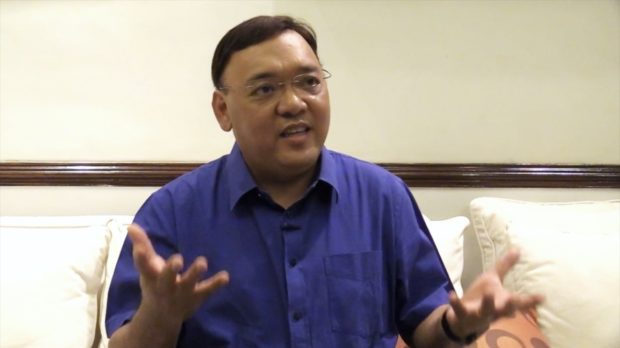
Presidential Spokesperson Harry Roque. INQUIRER file photo / RYAN LEAGOGO
The crackdown against “tambay” or loiterers ordered by President Rodrigo Duterte should not be equated to criminalizing vagrancy, Malacañang said on Thursday as it tells critics to just question the program’s legality before the Supreme Court.
Presidential Spokesperson Harry Roque said anyone was free to question the legality of the President’s order before the Supreme Court.
“We are not criminalizing vagrancy,” Roque said during a Palace briefing.
Roque said Duterte also welcomes planned Congressional investigation on his order to accost loiterers who idle their time away in the streets especially at night.
“We welcome the Congressional investigation and we welcome also challenges before the Supreme Court. The President has said so,” he said.
“Well, sabi nga ni Presidente kung tingin niyo illegal ‘yan, kwestyunin niyo na ako sa hukuman,” he added.
(The President has said that if you find this campaign illegal, do not hesitate to question it before the court.)
The Palace official said Duterte’s order to intensify crackdown against loiterers was only meant to implement existing laws and ordinances.
“We are implementing the laws and ordinances and it is a form of higher police visibility intended to act as a deterrent toward the commission of crimes,” he said.
In a speech last week, Duterte directed authorities to be strict with loiterers, saying they are “potential trouble for the public.”
The President told the police to bring to his office in Malacañang those who would refuse to heed the police and would remain loitering in the streets, even at night time.
Before, vagrancy was considered a crime under Article 202 of the Revised Penal Code until the provision was repealed in 2012 under President Benigno Aquino III. /jpv
RELATED STORY
Duterte wants ‘arrest’ of loitering minors